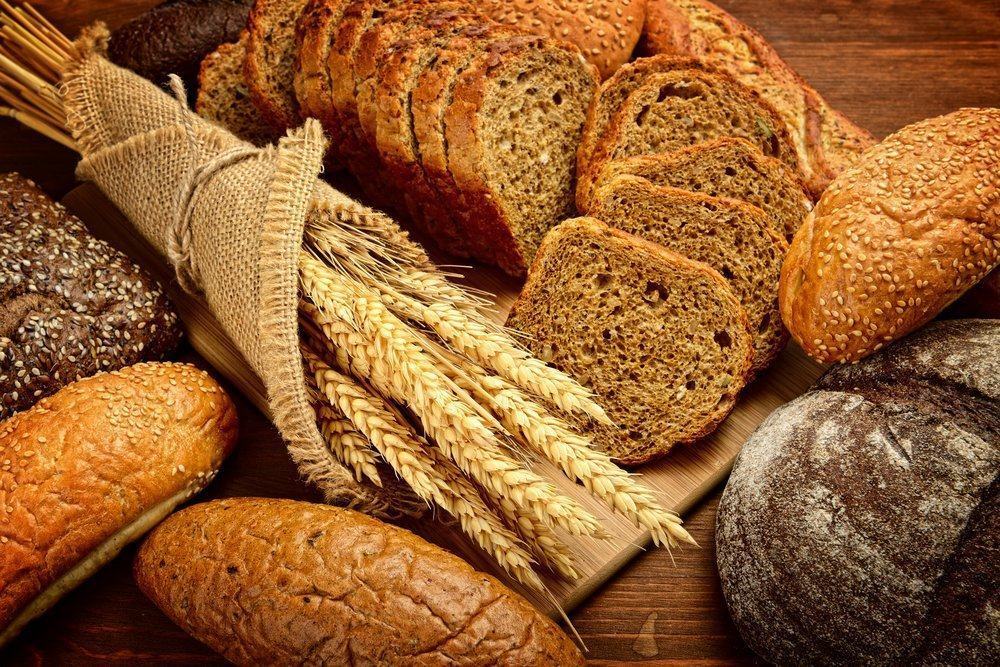Contents:
- Medical Video: Healthy Dose: Study - Whole Grain Diet Can Help Reduce Heart Disease Risk
- What is that whole grain?
- What is that refined grain?
- What effect whole grain for the body?
- 1. Contains a lot of fiber
- 2. Promotes digestion
- 3. Lower cholesterol levels
- 4. Helps control weight
- What effect refined grain for the body?
Medical Video: Healthy Dose: Study - Whole Grain Diet Can Help Reduce Heart Disease Risk
Currently the type of healthy food has become a trend among the people. Many types of food that you might have known before, but now appear in a healthier version. Examples are whole grains, or more popular by name whole grain. Besides whole grain,refined grain or processed grains may also be familiar to your ears. Regardless of the trend, whole grain and refined grain it can indeed affect your health.
What is that whole grain?
Whole grain often associated with starchy foods but in healthier versions. Bread whole grain, flour whole grain, are several types of processed products from whole wheat. But actually, whole grain or whole grains, is a type of grain that has not undergone a processing or grinding process. These grains can be in the form of wheat, rice, sorghum, quinoa, even popcorn. Whole grain refers to grains that still contain all the edible parts of the seed, such as the skin (bran), institutions (germ), and endosperm. All parts of these grains are beneficial for health because they contain a lot of nutrients needed by the body such as fiber, vitamin B, antioxidants, iron, copper, selenium, potassium, and magnesium.
Example whole grain that is:
- Oatmel or whole oat
- Brown rice
- Brown rice
- Black rice
- Whole black wheat
- Barley or barley intact
- Soba or buckwheat
- Quinoa
- Sorghum
- And flour is labeled whole wheat flour
Whole grain can be one type of food (such as brown rice) or can also be processed products (such as bread made using whole wheat flour)
What is that refined grain?
Simply, refined grain is the opposite of whole grain. If whole grain not undergoing processing, then refined grain undergo processing in such a way that the seeds lose part of the skin and its body, leaving a part of endosperm which only contains carbohydrates and a little protein. This processing is done to increase the storability of the seeds. Although the storage capacity increases, grain processing eliminates many nutrients found in the skin and institutions, including vitamins, minerals, and fiber.
Example refined grain that is:
- White rice
- Wheat flour (which is not claimed to be made of whole wheat)
- Processed products made from processed grain ingredients such as fresh bread, cereal, crackers, biscuits, and cakes. Most types of food are made from refined grain.
What effect whole grain for the body?
Because it still contains complete nutrition, whole grains can provide many health benefits for your body, including:
1. Contains a lot of fiber
Fiber is one of the important components that must be in your daily diet. Besides fruit vegetables, whole grain is one good source of fiber. You can get 5.8 grams of fiber in 2 slices of bread made with rye based ingredients. While bread made using flour is not from whole wheat can only contribute 1.9 grams of fiber every 2 pieces. Un cooked brown rice contains up to 5.5 grams of fiber every ½ cup, while the same amount of white rice contains only 2 grams of fiber.
Already well-known fiber gives many health benefits, ranging from launching a bowel movement to reducing levels of bad fats in the blood. For diabetics, consuming fiber can help control blood sugar levels. Consumption of sufficient fiber can also prevent you from heart disease to colon cancer. To get the maximum amount of fiber, try eating oats for breakfast.
2. Promotes digestion
In terms of fiber, whole grain can help facilitate digestion. Fiber also prevents the onset of diverticulosis, a condition in which small sacs form in the walls of the large intestine or colon and cause inflammation, constipation, diarrhea, and abdominal pain. Not only fiber, whole grain also contains lactic acid which helps work good bacteria in the large intestine. This organism can help absorb food substances and even strengthen your body's immune system.
3. Lower cholesterol levels
Whole grain play a role in preventing the body from absorbing bad cholesterol and reducing triglyceride levels. Both types of fat are risk factors for heart disease and stroke. One study found that women who consumed 2-3 servings of whole grain products every day had a 30% lower risk of having a heart attack later when compared to women who consumed only 1 portion of the product whole grain in a week. Each type of product is based whole grain has the same effect on heart health.
4. Helps control weight
Those who regularly consume whole grain have a tendency to be in a normal weight and not easy to gain weight when compared to those who often consume processed grains. A study related to the consumption of whole grains and weight gain revealed that women consumed more products whole grain such as brown rice, wheat bread, and popcorn have a 49% lower risk of gaining weight in large numbers when compared to those who prefer to eat bread, donuts and products refined grain others. Fiber on whole grain will make you feel full longer so it prevents you from eating unhealthy snacks and helps control your eating portions.
Consume whole grain also associated with the distribution of healthier fats. Whole grains are said to reduce the formation of belly fat, a type of fat that can increase your risk of suffering from diabetes and various degenerative diseases later on.
What effect refined grain for the body?
Because it has gone through various processing processes, refined grain only endosperm is high in calories, high in carbohydrates, high in starch, and contains little protein. Because the part that contains a lot of fiber has been separated from the endosperm, then refined grain become more easily digested by enzymes in the body. This can cause an increase in blood sugar levels after consumption. But this sudden rise in blood sugar levels is followed by a sudden decline, sending a hungry signal to the body. This causes a person to tend to eat more than needed, triggering weight gain to obesity. Processed grains are also associated with various metabolic disorders such as insulin resistance, type 2 diabetes mellitus, and heart disease.
READ ALSO:
- The Importance of Carbohydrates and Fibers for Handling Hypertension
- The Best Type of Wheat for Health
- Know the Glycemic Index in Food












